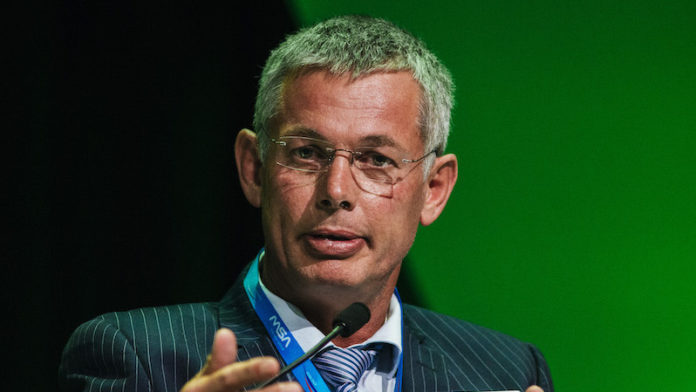
SHAREHOLDERS in Royal Bafokeng Platinum (RBPlat) would be “cognisant of market risk” that in the absence of merger and acquisition activity shares in the company were likely to fall below current levels, said Nico Muller, CEO of Impala Platinum (Implats).
Muller was commenting shortly after Monday’s announcement that the platinum group metal (PGM) firm intended to launch a general offer in January for RBPlat shares it didn’t already own. This was after revealing Implats had last week bought 24.5% of RBPlat for R150/a share from a group of institutional shareholders including Allan Gray and Coronation Asset Management.
Shares in RBPlat were trading today in Johannesburg at R141.47, representing a 30-day gain of 26.8%. While Implats’ offer pales next to the R180.50/share at which Northam Platinum earlier bought a 32.8% stake in RBPlat, Muller thought Northam was unlikely to make a counter offer at that level.
Northam had bought its stake from RBPlat shareholder, Royal Bafokeng Holdings (RBH) on an exclusive, bilateral basis, he said. A lower offer from Northam was also prohibited for six months in terms of JSE regulations.
Muller’s view, therefore, is that institutional shareholders in RBPlat would look to crystallise value as per the cash portion of Implats’ R150/share offer. They would then wait to benefit from operational synergies Implats could extract from a joint venture with Northam in RBPlat, he said.
Muller was upbeat on Implats’ new reality that – instead of 100% of RBPlat as first desired when it unveiled its intentions in October – a joint venture in RBPlat was the likelihood. “When partners manage a joint operation, we make decisions that are in the best interests of all shareholders as well as stakeholders,” he told analysts in a presentation on Monday.
“I have no doubt that despite all the posturing in the M&A process that at the end we will find a strong and collaborative relationship between the eventual shareholders,” he said.
Arnold van Graan, an analyst for Nedbank Securities, expected “a lot of jostling and negotiation over the coming days and weeks. Ultimately though, real value unlock and accretion would have to come from all stakeholders working together.”
An important aspect of synergies Implats hopes to access is on the processing side of the mining business. Smelting and refining capacity of PGM ore is tightly held in South Africa. Miners are always looking at ways to improve recoveries and create new capacity especially as the industry faces a two- to three-year supply deficit for certain PGMs.
By treating RBPlat’s UG2 ore in its concentrators, Implats would create capacity at RBPlat’s processing facilities and allow for the concentration of Merensky and UG2 ores separately. This would result in recovery enhancements, said Muller.
There was also potential for mining expansions and improved efficiencies in the event neighbouring shafts in Rustenburg were under a single management. “We believe there is significant potential to expand, particularly at Shaft 20,” said Muller. A single management of RBPlat and Implats’ Rustenburg operations could also achieve better economics in offtake agreements.
Critically, however, Implats solves the problem of its limited mine life at its Rustenburg operations by owning RBPlats, even in joint venture with Northam.
“The primary strategy for Implats is likely to lie with the strategic optionality to significantly extend the life of mine production profiles given contiguous orebodies,” said RMB Morgan Stanley analysts Christoper Nicolson, Brian Morgan and Jared Hoover in a note. “This has historically proved a major overhang on the Implats investment case.”
Said Muller: “For Implats, it would have been ideal to acquire 100% in RBPlat, but we believe there are various shareholding points that will offer various propositions.
“We do think it is important for us to get a controlling stake – 50.1% – but not necessary for us to migrate to 100%. So we believe that even at a lower shareholding percentage we will have a significant influence,” he said.









